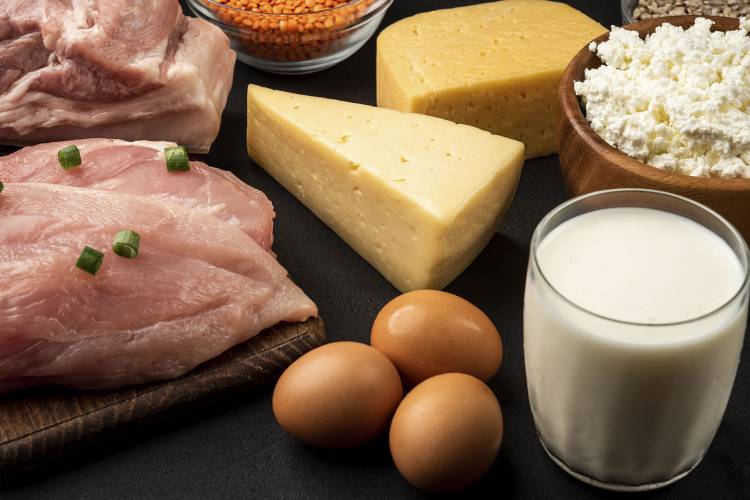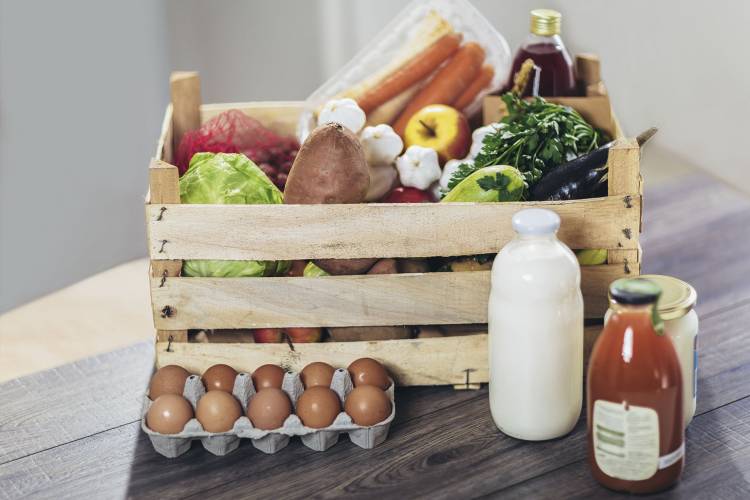High-protein foods, a new trend?
If there is one food trend to watch out for this year, and which appears to be here to stay, it is high-protein foods.
TRIED AND TESTED
Share

This trend is linked to the increase in physical activity and sport which was already booming some years ago. These high-protein foods are aimed at a segment of the population in particular, sportspeople. Why? Because they are developed to add an extra dose of natural protein to the body, which contributes to both improving maintenance of muscle mass and bones through physical activity as well as preventing them from wearing out or ageing prematurely.
Are you a sportsperson, and would you like to find out how to add extra protein to your diet in a natural way? Below, we give you a list of some foods and products that are high in protein.
What is protein
Protein is a set of complex macromolecules which form through the union of different amino acids which we acquire naturally through food. They have very important functions in our bodies, such as the maintenance of tissue, the transport of oxygen and carbon dioxide through the blood and the maintenance of blood pH, among other essential functions.
These macromolecules are vital for cell growth and their consumption is particularly relevant at various stages of human development, such as infancy, adolescence, pregnancy and even during lactation. Protein is also an essential nutrient for the maintenance of muscle mass which declines with age, particularly in women as they reach the menopause.
Protein and sport: the benefits
Apart from helping to maintain bones and muscle through sport, do you know about the different benefits of eating protein for sportspeople?
- Helps to prepare the body for practicing sport.
- Takes part in the repair of muscle tissue after exercise.
- Helps the body recover after sports or excessive energy use.
- Helps to prevent premature ageing or wear of bones and muscles. To do this, the quantity of protein you consume should reach a minimum level. The WHO (World Health Organisation) recommends a daily intake of 0.8 g of protein for every kg of weight in a person who does not practice daily exercise. However, a person who exercises regularly should increase their protein consumption according to the sport they practice. Always seek advice from a nutrition specialist!
- Along with taking physical exercise, it helps to generate muscle mass.
It is worth pointing out that, although protein foods are beneficial, following a balanced diet which includes all the nutrients required is recommended.

High-protein foods
Although products such as protein shakes and protein desserts are a very new and fun way of adding protein to your diet, you can also increase the following high-protein foods in your meals.
- Milk, eggs, fish and meat: milk, eggs, fish, seafood and molluscs, along with veal, chicken and pork are great sources of animal protein.
- Nuts: most of these foods are rich in vegetable protein and are an easy way of adding protein to your diet. Find out more about the nuts that should not be missing from your diet.
- Vegetables and garden produce: kale, Brussels sprouts, broccoli, broccolini, spinach, mushrooms, artichokes, corn salad and asparagus are some of the many vegetables that have a high protein content.
- Legumes: most legumes are a source of vegetable protein. Among this food group, lentils, peas, chickpeas, beans and soya are some of the richest in this nutrient.






